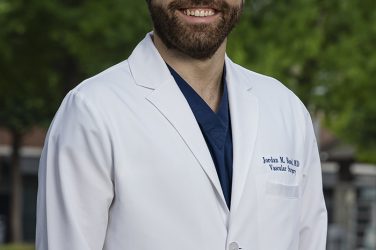
Q&A
Orthopedic Surgeon
I’m considering spine surgery. How much improvement can I truly expect?
The decision to undergo any type of surgery should only come after careful discussion with a trusted surgeon and only after the two of you have exhausted all non-operative care options and you haven’t found relief. The surgeons at The AOA and Baylor Scott & White Orthopedic and Spine Hospital have consistently scored at the top of North Texas hospital systems for providing excellent cutting-edge care with the lowest complication rates. Keep in mind that, once surgery is complete, it’s up to you to perform all post-operative therapy as instructed by your surgeon to ensure optimal improvement and get you back as close to 100% as physically possible.
How much down time should I plan for?
That will depend upon the type of surgery you have scheduled. For instance, you shouldn’t return to driving until it’s safe for you and others on the road. Can you get safely in and out of your car? Are there necessary braces and slings that impede your ability to drive? You shouldn’t drive at all if you’re taking narcotics, muscle relaxers, or nerve medications. And you should have complete use of both arms and at least your right leg and be able to safely slam on the brakes in an emergency situation before you even consider driving. Returning to work is a more involved discussion with your surgeon, as some procedures may allow for return to work within three days, while others will need weeks or months to adequately recover.
How soon should I start physical therapy?
Therapy should start anywhere from the first few hours after a total joint replacement or spine surgery, to the first few days after arthroscopic surgeries. In some instances, PT may be delayed for six weeks for certain fractures, joint reconstructions, or rotator cuff repairs. Therapy will last anywhere from a couple of sessions to several months, depending upon the extent of the surgery, formation of scar tissue, and how diligent you are about your prescribed daily exercises. The job of a physical therapists is to teach you the exercises you need to perform and to demonstrate how to perform them perfectly, so you feel confident doing them on your own at least twice every day.
What are some non-operative therapies I can try if I don’t want to have the surgery?
Even the most experienced surgeon should only consider surgery until all non-surgical options have been exhausted including measures such as therapy, exercise, braces, appropriate medications, injections, activity optimizations, etc. Your orthopedic subspecialist or spine surgeon should be able to talk you through all your viable options and explain expectations of the different non-operative treatments and surgical options. These modalities not only allow those who don’t need surgery to successfully improve, but can also help those patients who need surgery be in a better physically and psychologically position before and after surgery to improve more optimally.
About The Expert

Jesus Rey II, M.D.
Baylor Scott & White Orthopedic and Spine Hospital
Dr. Jesus Rey joined Southwest Orthopedics in 2009 and his interests include disorders of the elbow, shoulder, and knee. He performs arthroscopic surgery, reconstructive ligament reconstruction and instability) surgery, as well as arthroplasty (joint replacement). He also specializes in complex extremity fracture care as a Traumatologist. Dr. Rey is Board-Certified by the American Board of Orthopedic Surgeons.










